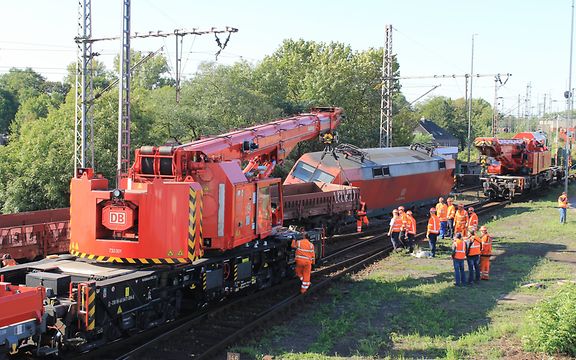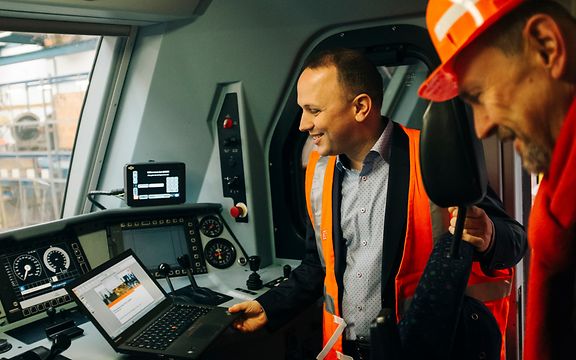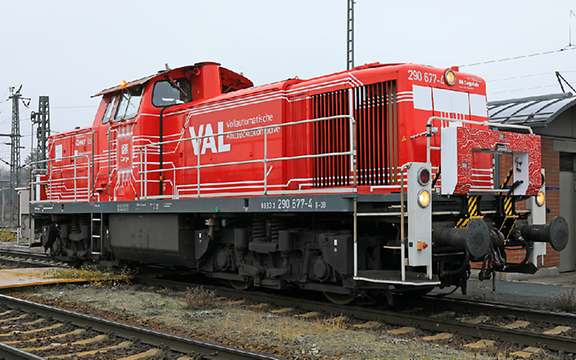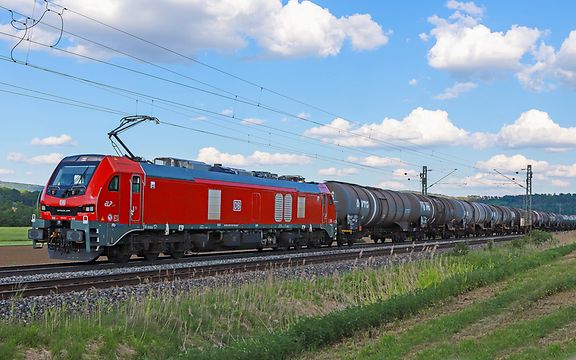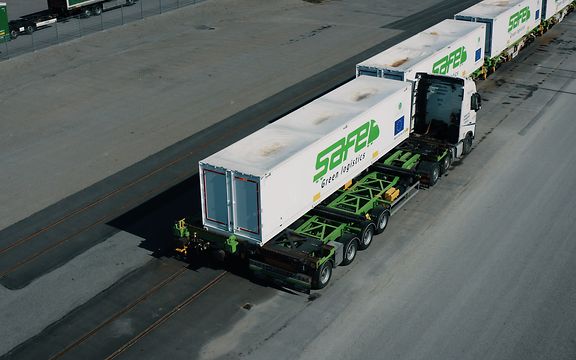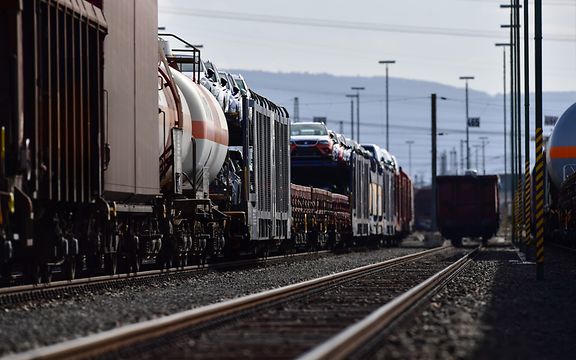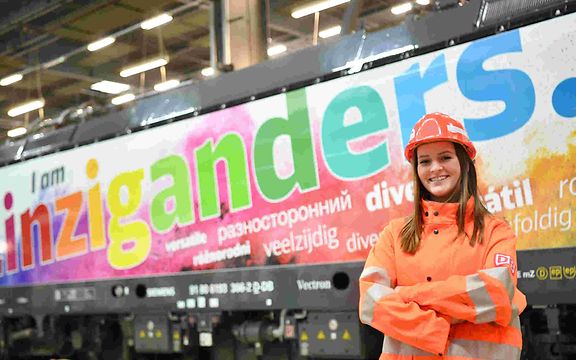Combined transport (CT) is a promising market with growing economic importance; forecasts see an 80% increase by 2030 in the volume of freight transported by CT. To prevent infrastructure becoming congested, the German government is subsidising private companies that want to build new transhipment terminals or expand or replace existing ones. And for good reason: CT unlocks logistical potential for rail transport.
Shifting cargo from road to rail makes businesses more independent and improves their performance, since their freight can be transported more efficiently. Having a private transhipment terminal enhances this effect. Loading large amounts of heavy freight onto trains on-site is faster and more economical than relying on lorry transport to an off-site terminal for the first and last mile. It also means a longer time window for loading and unloading, making it easier for businesses to plan their transport operations.
Eco-friendly logistics pays off
But that's not all. With sustainable logistics, CT helps in the fight against climate change by reducing CO2 emissions. Carbon emissions from rail freight are up to 80% lower compared with the equivalent transport by road. And for the good of the environment, DB Cargo's Eco Solutions even provide 100% carbon-free transport with renewable power.
CT funding policy at a glance
Good to know: Right from the submission of funding applications to the Federal Railway Authority (EBA), DB Cargo helps companies planning to build or expand a transhipment terminal and provides them with advice and support throughout their project.
Facts and figures:
- A German government directive (Federal Ministry for Digital and Transport) on the promotion of investments in transhipment terminals for combined transport entered into force on 23 November 2022
- Projects with a volume of at least EUR 100,000 will receive support with up to 80% of the costs
- Funding applications for rail-road CT must be approved by the Federal Railway Authority
- The funding policy will be in force from 23 November 2022 to 31 December 2026
Requirements:
- Financing with private capital alone is not economically feasible
- The project has not already been started prior to the decision on subsidising it
- The project safeguards existing rail freight transport or ensures the shift of freight transport to rail
- The applicant is a privately held company





